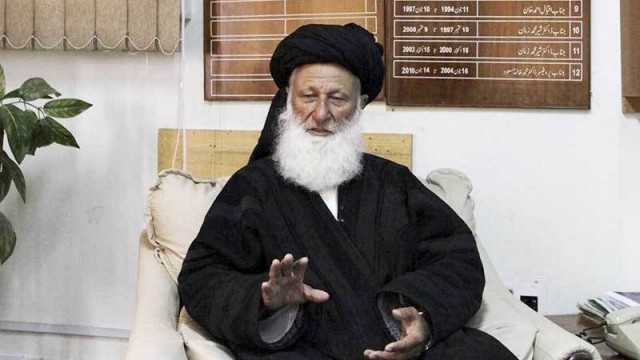Blasphemy – Unsettling The “Settled Law”
While talking to Reuters on 28th January, 2016, Maulana Muhammad Khan Sherani, Chairman of the Council of Islamic Ideology (CII) made a statement that he is ready to re-open the debate over blasphemy law in Pakistan. The reason that he was reported to have given such a statement in his own words was that “there is a lot of difference of opinion among the clergy on this issue”.
The Chairman seems to be oblivious to the fact that this subject has already been dealt with comprehensively by the Federal Shariat Court (FSC) in the year 1990. Various jurisconsults representing different schools of thought in Islam were called before the court for assistance who gave their opinion on the law of blasphemy as enshrined in section 295-C of Pakistan Penal Code, 1860.
Inter alia it was made clear in the judgment that a person alleged to have committed blasphemy must be allowed an opportunity to explain lest an innocent person is punished. In support of this finding, the court relied on the tradition of the Holy Prophet Muhammad (pbuh) which says, “The mistake of Qazi (judge) in releasing a criminal is better than his mistake in punishing an innocent.” (Sunan Al-Baihaqi, Vol. VIII, page 184). The judgment further expounds that the right of an accused to explain the commission of the offence of blasphemy against the Holy Prophet Muhammad (pbuh), is present and cannot be taken away. It is only after the explanation given by the accused the court can decide whether the said words were intended to malign the Holy Prophet Muhammad (pbuh) so as to impose the sentence of death on the same. This judgment (PLD 1991 FSC 10) to the best of my knowledge stands unchallenged to date and due to this fact it represents the correct and existing position of law regarding blasphemy.
It is an appeal to the Chairman CII to peruse the entire judgment before resorting to proposing new recommendations to the government regarding the law on blasphemy. If after perusal he still maintains that there is a need to reform the existing position of the law, he may open up a debate on the issue again, but he should also be aware of what capacity and context he would like to initiate a debate in.
In his capacity of Chairman CII he, along with other members of the council can only make recommendations as to the measures for bringing existing laws into conformity with the injunctions of Islam and the stages by which such measures should be brought into effect (see Article 230(1)(c) of the Constitution of Pakistan, 1973). Nevertheless, the final authority in this regard rests with the Parliament alone which will decide whether such recommendations be given the shape of an enactment or not.
In his capacity other than Chairman CII (which would pertain to being a citizen of Pakistan), inter alia, he can pursue a legal remedy through a court of law on one hand, or hold seminars and symposiums with other scholars of good repute on the other, to bring awareness among the masses. The latter option seems better as opposed to the former. As for the former, one has to look into the procedural requirements of law e.g. the period of limitation in preferring an appeal to the Shariat Appellate Bench of the Supreme Court being aggrieved by the final decision of the Federal Shariat Court, OR, filing a petition in the Supreme Court agitating the issue of blasphemy under the head of ‘public importance’.
Whatever course the Chairman CII would wish to take, he must keep in mind the repercussions that the country might have to face in this time of turmoil by his endeavor to unsettle the settled law.
The views expressed in this article are those of the author and do not necessarily represent the views of CourtingTheLaw.com or any organization with which he might be associated.


